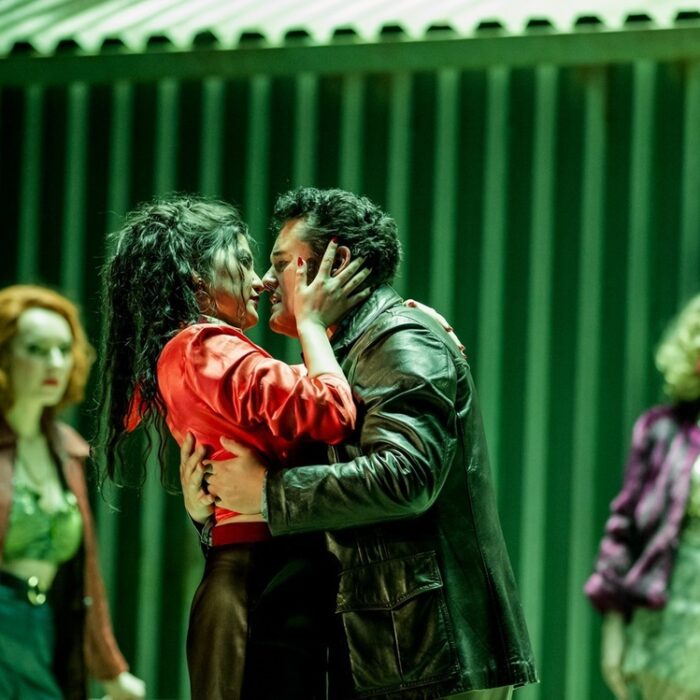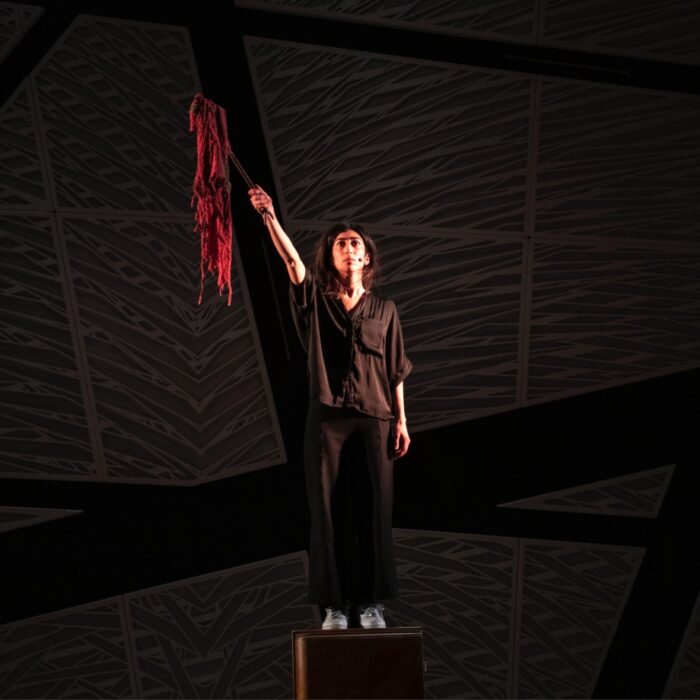
CD Review: Opera Rara’s ‘L’Esule di Roma’
By Bob DieschburgIn 2023, Carlo Rizzi and the British label of Opera Rara resurrected Mercadante’s unjustly neglected “Il Proscritto” – the story of the exile Giorgio Argyll’s return to Scotland and the ensuing, tragic love triangle at the heart of Salvadore Cammarano’s rather unlikely libretto.
In 2024, conductor Rizzi turns his attention to another exile: the former tribune Settimio who is the title-giving figure in Donizetti’s now rarefied “L’Esule di Roma.” A melodramma eroico set in Imperial Rome, it was written for the 1828 season of Naples’ Teatro di San Carlo, two years before the composer reached stylistic maturity with his Tudor opera “Anna Bolena.”
Yet it would be premature to reject this “Roman exile” on the grounds of it belonging to his journeyman years, so to speak, during which Donizetti produced well over a dozen operas: For despite its many weaknesses it gives an interesting glimpse into the transitionary period between the remnants of the 18th century and the advent of full-scale Romanticism.
The Advent of Romanticism
As is customary, the label furnishes an eloquently written booklet with highly informative essays on the historical context as much as the genesis of “L’Esule di Roma;” in the essay of Eleonora di Cintio its creation is aligned with the reception of Spontini’s “La Vestale,” in many ways a prototype to the setting and even scenic development of the Donizetti piece.
It is, however, equally tempting to view “L’Esule di Roma” within the larger, emancipatory framework transitioning from Ancien Régime classicism into the Romantic Age. As such, there are conflicting elements at play which, in some respects, anchor the opera within the conventional codes of the 18th century while, in others, breaking fresh musical ground.
For instance, the libretto with its improbably happy denouement portrays a conflict of filial loyalty akin to the output of classicist plotlines by Pietro Metastasio and others. In this sense, Domenico Gilardoni – the librettist – walks a well-trodden path.
On the other hand, the portrayal of the grief-stricken Senator Murena deviates from the monolithic norm set by Metastasio and his peers. Murena has levied false accusations against Settimio which lead both to his banishment and his later death sentence; beset by remorse, he suffers from bouts of madness which Donizetti musically translates as syncopated lines and declamatory passages.
Murena’s impending insanity may therefore be the earliest of Donizetti’s so-called mad scenes.
Deus ex machina
Donizetti conceives of musical patterns which seem to anticipate some of Verdi’s most poignant inventions. Take, for example, the pairing of bass and baritone in the duet between Murena and General Publio; it vaguely foreshadows the meeting of Attila and Ezio. Similarly, his decision not to end Act one in a concertato finale paves the way for Verdi’s spectacular tercet in “Il Trovatore.”
Yet even at its most innovative “L’Esule di Roma” cannot make up for its rather glaring shortcomings. The role of Settimio, for instance, remains rather secondary, if not bland; it does not nearly approach the psychological complexity of Murena. Instead, it is stalled by the unevenness of the libretto and its deus ex machina ending.
To a lesser extent the same holds true for his beloved Argelia whose part is commanding for its vocal acrobatics more than for its melodic prowess.
Nicola Alaimo, Magisterial
Fortunately, the cast is superb and keen to deliver the very best the score has to offer.
First and foremost, Nicola Alaimo is a formidable Murena. It is by no means an easy part; from the outset it oscillates between low-tessitura graveness and baritonal heights, reached in the introductory lament of “Eccomi a voi.” The latter also holds some coloraturas which Alaimo seamlessly integrates into the generously spun arks of his phrasing. On the flipside, the Sicilian bass-baritone expressively tackles the syncopated rhythms of Murena’s declining mental acuity.
General Publio’s part is sung by Lluís Calvet i Pey. The Catalonian’s timbre is infinitely alluring and reminiscent of the layered voice type of, for instance, Giorgio Zancanaro. It complements the slightly grainy profile of Nicola Alaimo, particularly in the introduzione of Act one.
A coloratura specialist, Albina Shagimuratova lends her voice to the somewhat tepid figure of Argelia who is very much ingrained in the musical tradition of Rossini – and as such, out of line with the psychological polyvalence of Murena. Still, the part yields many showpiece moments, including notes above the staff which Shagimuratova executes with steely ease.
Finally, the Roman exile – Settimio – is portrayed by Sergey Romanovsky who has a dark-hued tenor with ringing tops and an innate ability to shade and color – which, unfortunately, is not enough to infuse his character with three-dimensionality, let alone psychological traits.
The scena and aria of “Nudo Terren” – a musical afterthought, by Donizetti – may be his best moment; but to who currently writes the impression unfailingly prevails that the role does not entirely match his vocal inclinations.
A Stepping Stone to Greatness
Carlo Rizzi is at the helm of the Britten Sinfonia and leads with unerring steadfastness.
Yet the sophistication of its musical execution does not lift “L’Esule di Roma” into the same class as other, more fortuitous discoveries from Opera Rara and its repertory consultant, Roger Parker.
Unlike Mercadante’s “Il Proscritto,” for instance, it does not display the maturity of Donizetti’s later works, even though the melodic buildup and some of its scenic inventions are already unmistakably Donizettian. However, they do not outweigh the prominence given to stock figures and their place in an otherwise inconsistent narrative.
“L’Esule di Roma,” in short, represents a stepping stone on Donizetti’s way to artistic maturity, a transitionary moment into the advent of Romanticism and the genius of his Tudor operas.


